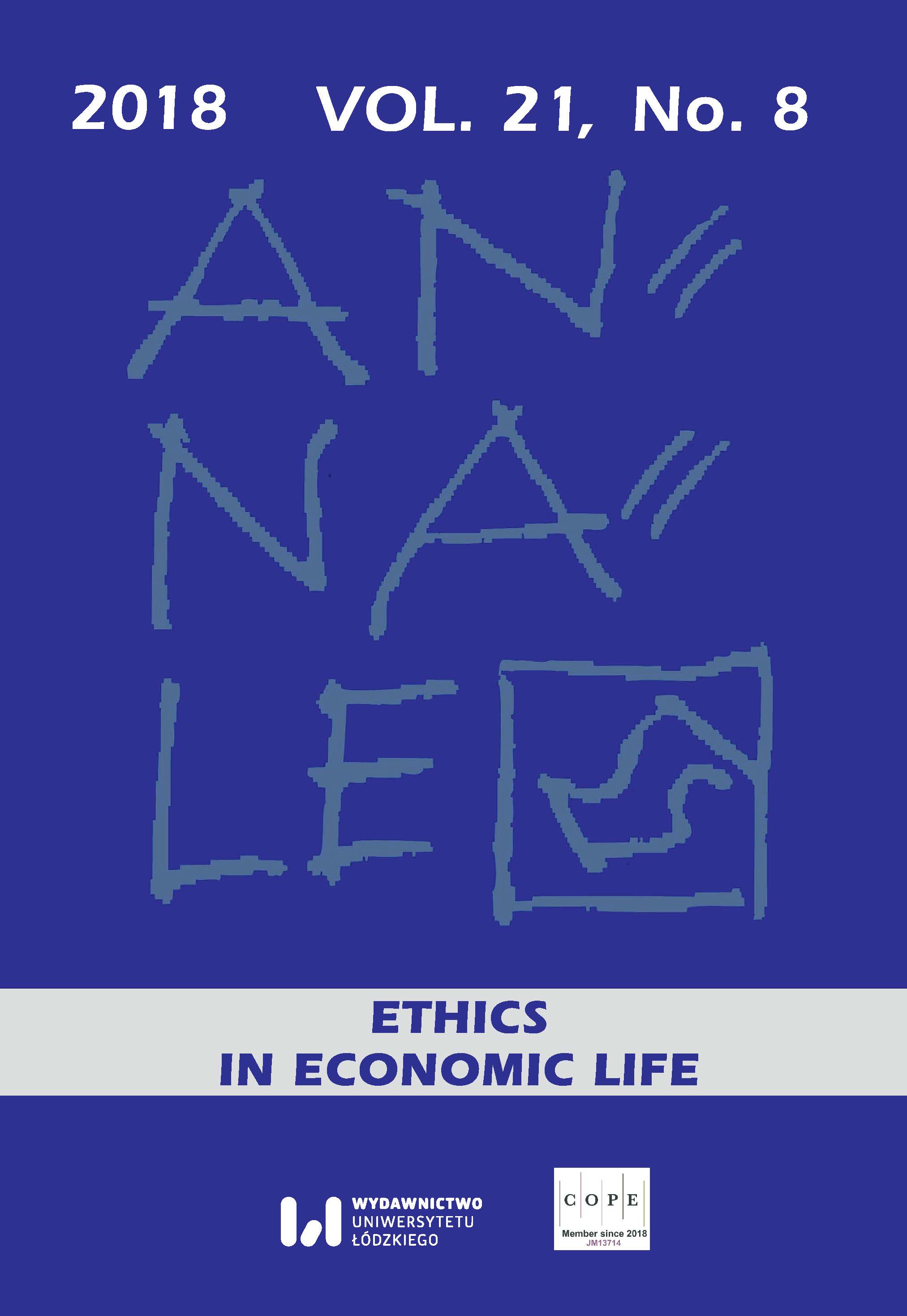Is there a growing social acceptance of earnings inequalities in Poland?
DOI:
https://doi.org/10.18778/1899-2226.21.8.07Słowa kluczowe:
social acceptance, earnings, inequalities, econometric model, PolandAbstrakt
In our studies, we deal with the estimating of the optimal ranges of earnings – the optimal Gini indexes which are favourable to the maximisation of GDP growth in Poland. We suspect that the optimal Gini coefficients expressing the whole of society’s acceptance of earnings inequalities can increase. In the article, we formulated a hypothesis on society’s habituation to increasing earnings disparities. We verified the hypothesis on the basis of the model of economic growth using data from 1970 to 2007. We carried out econometric studies in two stages. In the first stage, we estimated the optimal Gini coefficients for short subsequent sub-periods. In the second stage, we studied the character of changes in the optimal Gini coefficients. In the studies, we proved the hypothesis on society’s habituation to increasing earnings disparities. The optimal Gini coefficients increase along with the increase of differences in earnings and the increase of the economic level per capita. The growth of the optimal Gini coefficients may be slowed down.
Bibliografia
Baumol, W. J. (2007). On income distribution and growth. Journal of Policy Modeling, 29(4), 545–548.
Google Scholar
Chen, B.-L. (2003). An inverted-U relationship between inequality and long-run growth. Economics Letters, 78, 205–212.
Google Scholar
Cornia, G. A., & Court, J. (2001). Inequality, growth and poverty in the era of liberalization and globalization. Helsinki: The United Nations University WIDER. http://www.wider.unu.edu/publications/pb4
Google Scholar
Kołodko, G. W. (2008). Wędrujący świat. Warszawa: Prószyński i S-ka.
Google Scholar
Kot, S. M. (2004). Nierówności ekonomiczne i społeczne a zasady sprawiedliwości dystrybutywnej. Nierówności Społeczne a Wzrost Gospodarczy, 4, 45–55.
Google Scholar
Kowalik, T. (1997). Czy sprawiedliwość społeczna kosztuje? Artykuł polemiczny na marginesie książki pt. Efektywność a sprawiedliwość. Ekonomista, 3, 291–323.
Google Scholar
Kumor, P. (2006). Nierównomierność rozkładu płac. Wiadomości Statystyczne, 9, 1–12.
Google Scholar
Kumor, P. (2009). Współzależność nierówności płac ze wzrostem gospodarczym w Polsce. Wiadomości Statystyczne, 7, 10–28.
Google Scholar
Kumor, P. (2011). Czy w Polsce rośnie akceptacja społeczna dla nierówności płac? Annales. Ethics in Economic Life, 14(1), 171–179.
Google Scholar
Kumor, P., & Sztaudynger, J. J. (2007). Optymalne zróżnicowanie płac w Polsce – analiza ekonometryczna. Ekonomista, 1, 45–59.
Google Scholar
Sen, A. (2000). Nierówności. Dalsze rozważania (J. Topińska, Trans.). Kraków: Wydawnictwo Znak.
Google Scholar
Pobrania
Opublikowane
Jak cytować
Numer
Dział
Licencja

Utwór dostępny jest na licencji Creative Commons Uznanie autorstwa – Użycie niekomercyjne – Bez utworów zależnych 4.0 Międzynarodowe.









